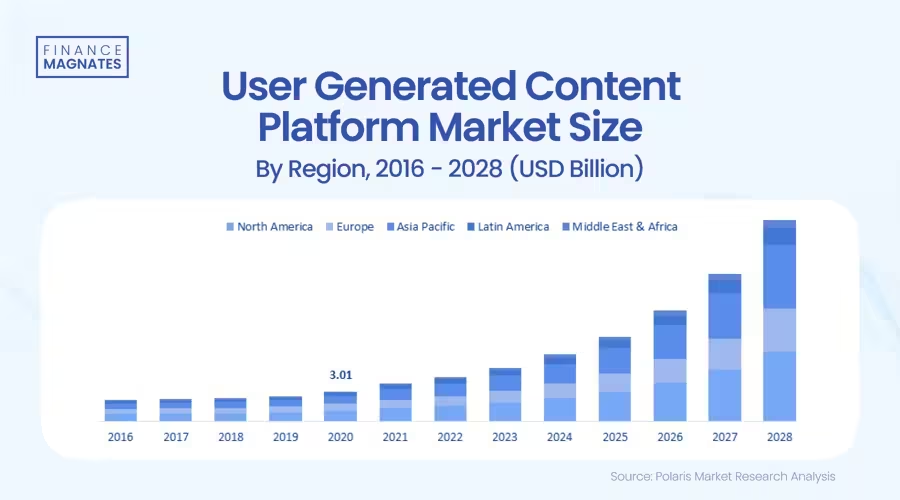The internet’s evolution from Web1 to Web2 marked a massive shift in how we interact with content. In the days of Web1, most of us were passive observers. We consumed content, clicked through web pages, and absorbed the information in front of us. But Web2 changed the game. Suddenly, user-generated content (UGC) took center stage, with social media platforms allowing everyday people to become creators.
The Creator Economy
Creators began to thrive on platforms like YouTube, Instagram, and TikTok. More and more people saw a path out of the monotony of traditional 9-5 jobs and into the freedom of expressing their creativity online. Dreams of turning hobbies into careers spread like wildfire, especially among younger generations. The internet had become a place where passions could translate into money—at least, that’s how it seemed.
But not all is what it seems in the creator economy. While UGC grew exponentially, the distribution channels centralized in the hands of a few powerful platforms. Facebook, Instagram, YouTube, Twitch, and TikTok offered visibility and monetization, but at a significant cost. These platforms built empires on the backs of creators, offering just a fraction of the value in return.
first video from the @allinsummit – in conversation with @elonmusk available exclusively on @X(0:00) Besties welcome Elon via Starlink (05:31) Ukraine and Starlink (19:10) green shoots of @X (22:24) the creator economy and optimizing the @x experience(26:43) the ADL,… pic.twitter.com/vRpnrz3DLV
— The All-In Podcast (@theallinpod) September 12, 2023
Outside of the viral sensations and the top 1%, the majority of creators earn far less than they deserve. The promise that more content, more followers, and more engagement will lead to financial success is a mirage. Creators are stuck in a saturated landscape, struggling to stand out while the platforms reap the rewards of their labor.
Advertisers and sponsors join the fray, using the reach of content creators to push products, yet only a small percentage of that income trickles back to the creators themselves. Why do we continue to play this game? Why do we hand over control to platforms that profit off our creativity while keeping us locked in a system that restricts our freedom?
Creators are at the mercy of algorithms, which dictate what content gets visibility. Policies change without warning, leading to demonetization or shadowbans. Meanwhile, platform CEOs and executives pocket the profits.
Blockchain…
























